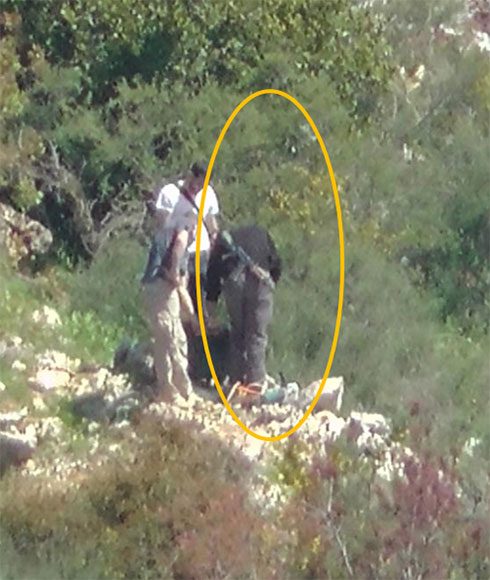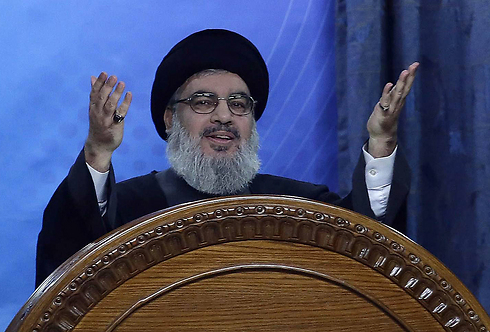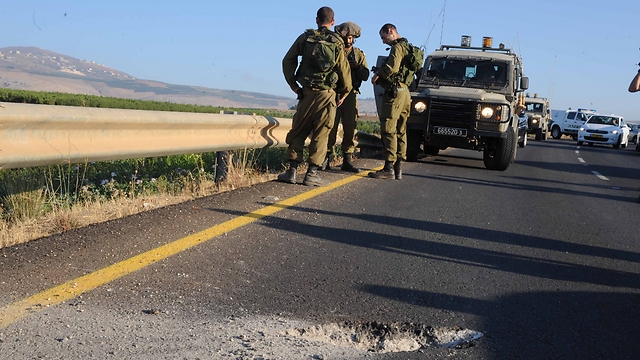Hezbollah may implement its plan to invade northern Israel if a third Lebanon war breaks out, according to an estimate by the IDF Northern Command. Sources in Israel have identified a change in the Shiite terror group's policies, which Hezbollah leader Hassan Nasrallah has defined as "breaking the silence."
According to the IDF estimates, Hezbollah has gathered the confidence necessary to attempt an invasion operation – as it managed with force on the border towns between Syrian and Lebanon, in al-Qusayr, Arsal, and the Qalamoun Mountains.
There was no concrete warning of an immediate threat by Hezbollah to launch a war against Israel or a surprise ground invasion, but the concern that a single event – with casualties – may flare up and lead, in quick succession, to the outbreak of war on the northern front.
The IDF believes that Nasrallah's declarations regarding an attempt to conquer the Galilee are far from credible; there is a growing concern that in the first few days of a war on the north, Hezbollah will deploy several companies to quickly raid Israeli communities located mere meters from the border – with each company staffed by 100 to 200 fighters from the group's special forces.
According to the IDF estimates, Hezbollah has gathered the confidence necessary to attempt an invasion operation – as it managed with force on the border towns between Syrian and Lebanon, in al-Qusayr, Arsal, and the Qalamoun Mountains.
As opposed to its previous modus operandi, in which pointed attacks were carried out by small cells numbering less than a dozen people, the new estimates fear that operations would be wide-ranging and include a blitz by at least 100 fighters in order to hold an Israeli position for three to four hours.
The possibilities include the seizure of part of a town, a mountain ridge, or an IDF outpost – all in order to achieve an unprecedented symbolic victory for Hezbollah.
Such an attack, according to Hezbollah publications in recent months, could occur simultaneously in four positions along the border with Israel. The western-most incursion would invade through the sea with a special naval commando force. The possible attack would include anti-tank fire on IDF forces in the area and suppressive fire from machine guns – to be preempted by a heavy barrage of large short-range rockets held by Hezbollah.
These rockets, which are not of the standard variety, carry warheads with 100 to 500 kilograms of explosives. The Syrian military has used these rockets during its ongoing civil war to demolish neighborhoods. The major benefits of their rockets are their massive destructive power and the difficulty for Israel in intercepting them.
The "breaking the silence" policy which Hezbollah has adopted in the past year, after seven years of relative calm on the border, mostly addressed Hezbollah's operational response to Israeli Air Force strikes.
These retaliatory operations included – in the past year – five attacks; in one incident two explosive devices, weighing 20 kilograms each, were activated against IDF forces.


















